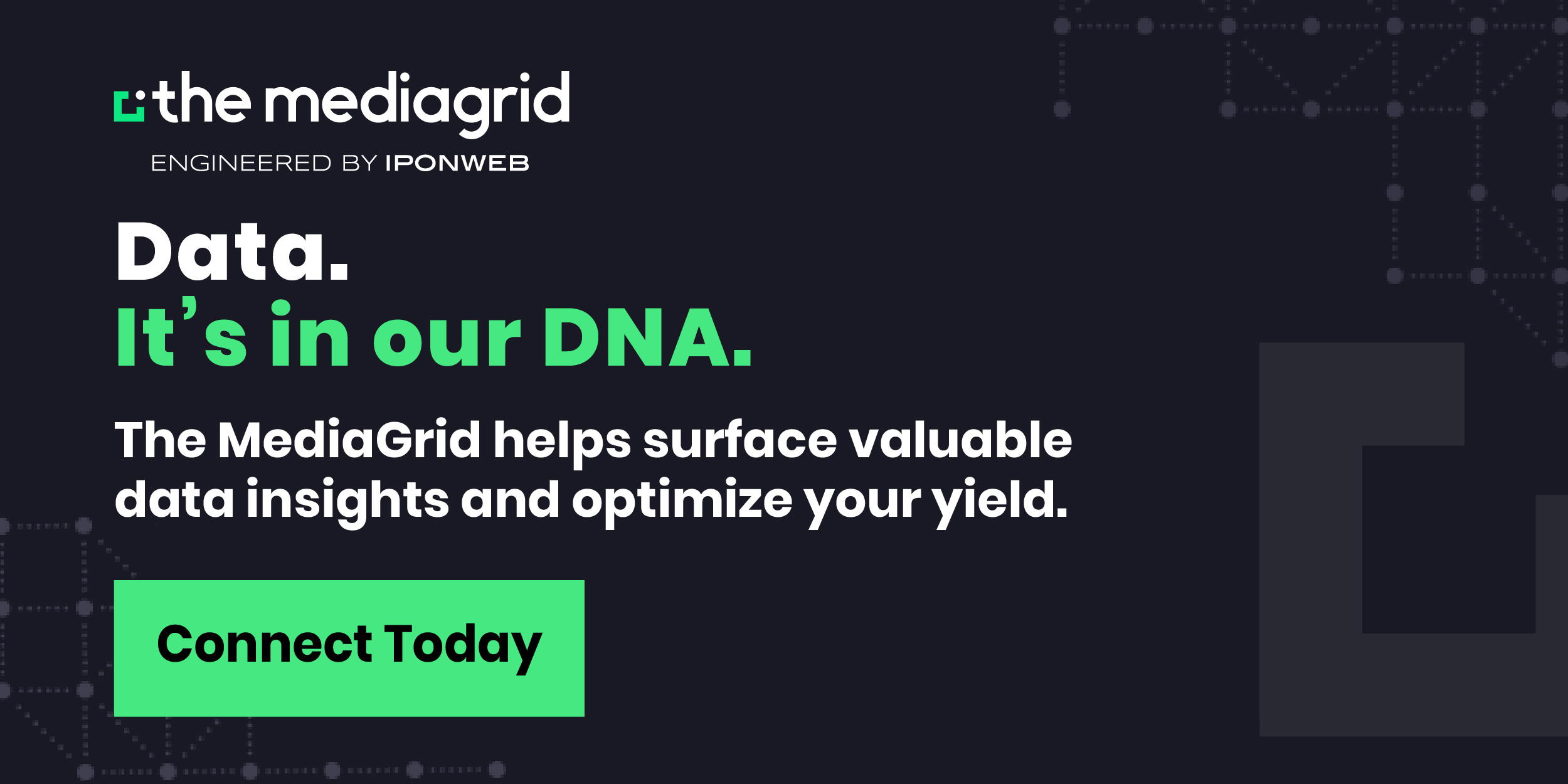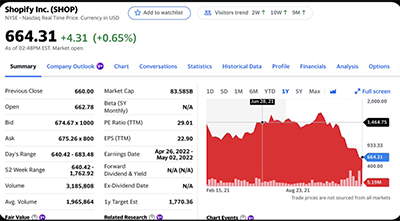 |
|||||||||||||||||
|
|||||||||||||||||
| Pulling In The Reins On Ad Quality |
 |
| The great debate over quality versus quantity is null and void when it comes to digital ads and the ultimate judge is the user. In a recent survey, 76% of publishers said user experience on their sites has been impacted by ad quality challenges, and 66% report that poor ad quality has negatively affected their revenue. Poor ad quality can encompass an array of unwanted ad types from sexually explicit/offensive and politically polarizing to clickbait and deceptive offers. If only the solution was as easy as flipping the off switch on all bad ads and keeping users happy all the time. But that would do away with programmatic advertising as we know it — the convenience of filling inventory that comes at the price of transparency and audience trust. |
| A bad ad experience will cause a user to ghost your site faster than a Tinder first date with no mention of why and definitely no intention of returning. Unfortunately, that bounce won't be realized until the user is long gone. Pubs, you just can't afford to waste first-party data like that. Conversely, publishers delivering positive user experiences gain loyal friends and active brand champions. Unfortunately, these wins are diverting your attention away from improving the programmatic process and gaining better control over bad ads flowing through the old ad tech pipes and landing on your pages. Sho who needs to own this process and what does that even mean? Depending on publication size and allocated budgets, there are only three ways we can think of: Put More on Ad Ops: No thank you. While this process should live with ad ops teams, adding another task to an already overflowing plate seems counterproductive. Acquire New Hires: At least one (ideally more) new team member dedicated solely to programmatic tracking but this maintains a level of manual processes. Adopt New Ad Tech: Adopting a tool is likely the most ideal option if publishers can afford it. It’s important however to fully assess the available options. A tool that just flags bad ads still requires a new addition to the team or it will bog down ad ops with what feels like a micromanager in machine form. An end-to-end tool is great but this will require meticulous prep work and a regularly scheduled assessment to maximize its use. No matter which direction a publisher chooses to go in, ad ops will be a crucial part of the dream team. |
 |
| Diving Deep for Data and Deals | ||
| First surpassing open exchange spend in 2020, private marketplace ad revenues are forecast to exceed open exchange spend by 43% in 2022 and by 60% in 2023. At the same time, research shows that 86% of marketers feel that first-party data will be vital to them moving forward. Nonetheless, as the IAB recently found, even though 70% of publishers feel that they are ready for the loss of the third-party cookie, 53% of data leaders think that their first-party data assets are not being leveraged in advertising and marketing. |
||
| As we shift into a post-cookie landscape, media buyers will be looking for new ways to partner with publishers to gain preferential access to inventory and data. Agencies will be looking to integrate first-party data into their buying strategies, including offering publisher-specific media buys or curated deals. By shifting to more direct buying models via increased usage of deals, PMPs, and more, publishers can control access to their proprietary data assets – including audience and contextual data - and see CPMs increase anywhere from 50 to 100% by layering on their first-party data. Publishers need to ensure that they are working with the right partners for transparency, secure data usage, and direct trading relationships. The MediaGrid is a next-generation SSP developed by IPONWEB, built from the ground up to give publishers tools to enrich their inventory with unique first-party data assets to supercharge their data strategies and boost their CPMs. Publishers can get closer to advertisers to form long-lasting relationships to satisfy advertiser buying goals while maximizing audience yield. By connecting to The MediaGrid, publishers can extend the value of their data to third-party supply and unlock new revenue streams – without giving up control of their proprietary assets. |
||
|
||
| Meta Flexes, Threatening to Leave the EU |
 |
| As the GDPR battle rages on, Meta vigorously flipped over the table shouting: "Hey bro, I’m tired of this mess." In a recent SEC filing, Meta threatened to pull their platforms from Europe altogether if they can no longer exchange data between EU and US users. The filing is in response to the Schrems II decision in July 2020 which continues to wreak havoc on all American tech giants, including Google Analytics. Although Meta is still able to share data between the two continents under Standard Contractual Clauses (SCCs), the company is calling for a more concrete GDPR-compliant replacement or otherwise, [they] “will likely be unable to offer a number of our most significant products and services, including Facebook and Instagram, in Europe, which would materially and adversely affect our business, financial condition, and results of operations." Since the SEC filing became public, Meta has begun to sing a more subtle tune claiming that they have no plans to withdraw from Europe but they are continuing to stress the importance of data transfers for their business and so many others. |
| Although Meta did a mega reverse, taking back their slippery threat, we couldn't help wondering…would Meta even make such a bold move? Maybe it would be a big screw you to privacy but how would it ultimately impact publishers, advertisers, and users? At first sight, we might be saying, well, it's just Facebook. But the Facebook platform has become so interwoven into the fabric of everyday existence for most people on earth, spanning across several other widely-used platforms like IG, WhatsApp, and Messenger. It's biggety big and kinda' like a utility company if you really think about it. For publishers and advertisers who conduct international business, this could severely alter both the advertising and content strategy in how European users are targeted. And for EU users, would an FB withdrawal block their use of all platforms? If so, would that open up user demand for less stringent privacy protocols? Aside from the social media platforms, WhatsApp is ranked as the most used messenger app in the world and therefore, would be a huge loss for millions of people. This is purely conjectured at this point, but we’d love to hear you're POV. |
| A Double Take on the Advantages of Programmatic Direct |
 |
| Programmatic direct deals. On the surface, this idea of fixed pricing and inventory commitments for premium inventory is a win-win for both the buyer and the seller. So why aren’t both advertisers and publishers jumping in with both feet? According to a recent article, the programmatic direct deal is an ideal play considering the deeply privacy-regulated waters we're currently swimming in that make targeted audiences feel like some distant buoy bobbing in the ocean. But unfortunately, technological advancements and a fear of the unknown are the main culprits holding back programmatic direct from its true potential. From a technical perspective, there isn't a standardized means for publishing supply, discovering it, negotiating a deal, and then executing all the above electronically. Considering neither publishers nor advertisers are as familiar with such an automated way to conduct direct deals, it really doesn't surprise us these deals aren't getting more shine. Publishers are hesitant to let their product, inventory, and pricing speak for themselves. Similarly, advertisers are not familiar with this level of self-service. |
| A call for more emphasis on programmatic direct could correlate with the predicted uptick in private marketplace spending (or maybe not, but more on that in a future issue) as the industry continues its valiant fight against malvertising. As a reminder, the average monthly malware incidents were 64% higher in Q4 2021 than the already high rate in Q4 2020. With bad actors expected to continue their deadly tactics to grow malvertising this year, publishers and advertisers feel compelled to fight back. Programmatic direct provides the advantage of more transparency, benefitting publishers and advertisers alike. This transaction model helps to avoid dollars wasted due to bot traffic and gives more immediate transparency into the impressions served as well as the actual audiences who engaged. This level of clarity into the process satisfies advertisers and gives them a reason to pay a premium price for direct deals which makes everyone happy. Now again, this pivot in ad spending may not be off the ground just yet but it is becoming more of a hot topic as budgets for programmatic further diversify and possibly lean into PMP and programmatic direct activity. And trust us, there are many sides to this tale of where programmatic dollars are actually being spent. |
| Around the Water Cooler |
| TTD Takes Shots at Google, Small Ad Tech Players Caught in Crossfire, Pubs Pleased TTD has been coming for Google's neck for quite some time, but no move felt quite as much like checkmate as this past week's when TTD announced plans to entirely pull out of Google's Open Bidding and launched their own Open Path, which allows advertisers to spend programmatic dollars directly without any SSPs in the middle. Sounds like SPO on steroids, doesn't it? On Ad Tech Twitter, Paul Bannister, Chief Strategy Officer at Cafe Media, said that being integrated with Open Path means that via Prebid, CafeMedia publishers are getting direct access to advertiser spend from TTD. He also noted, "This is a huge innovation and likely will cause some waves. We don't think this changes the position of strong SSPs that are innovating and I think this will be good for them. But SSPs that are just "pipes" need to start doing more, or they won't last much longer." Ouch!!! Opponents of TTD's latest move argue that it will just add more complications to an already overly complicated ad tech ecosystem. Frequent AdMonsters contributor, Simon J Harris, Director of DPG Media's Trade Desk, reminds us that there will still be an ad tech tax, even joining forces with TTD. Google could use some competition, but we have yet to see what the cost will be for SSPs and pubs in the long run. Google Finally Announces Apple ATT Plans For Android, Promises to Play Fair, Even Has FB Support We knew it was coming, but with Google, no one ever really knows when. While Google has not announced a definite timeline, it promises to give mobile pubs a lot of time to get their houses in order for the coming Privacy Sandbox on Android. We've talked about the FB/Apple saga ad Infinitum, and now Meta (formerly FB) says Apple's privacy measures have likely cost them billions in ad revenue. But Facebook is reportedly in support of how Google plans to roll out its Android privacy measures. Go figure! Bedfellows much? Google says it's committed to making these changes in partnership with mobile publishers. Let's just hope this won't be part two of how the partnership has been going with the privacy sandbox approach to the open web. |
 |
||||||||||||
|
||||||||||||
 |
||||||||||||
|
||||||||||||
 |
||||||||||||
|
| @{optoutfooterhtml}@ |









